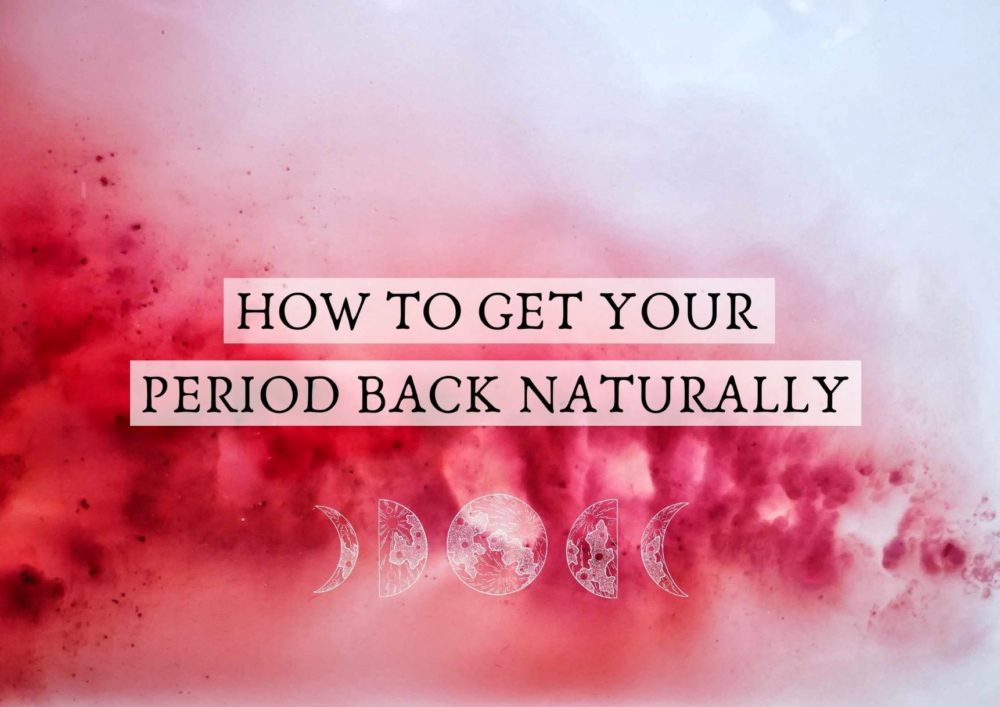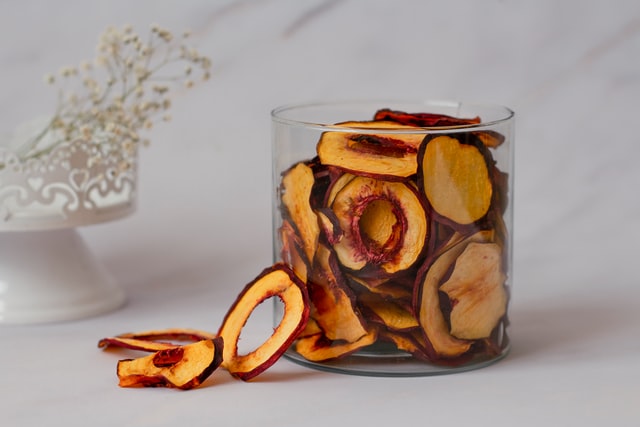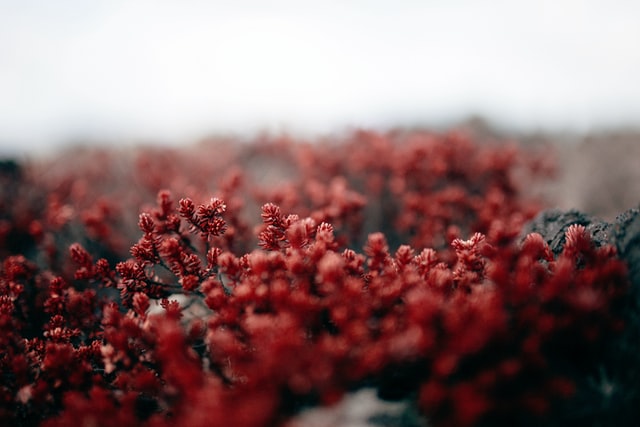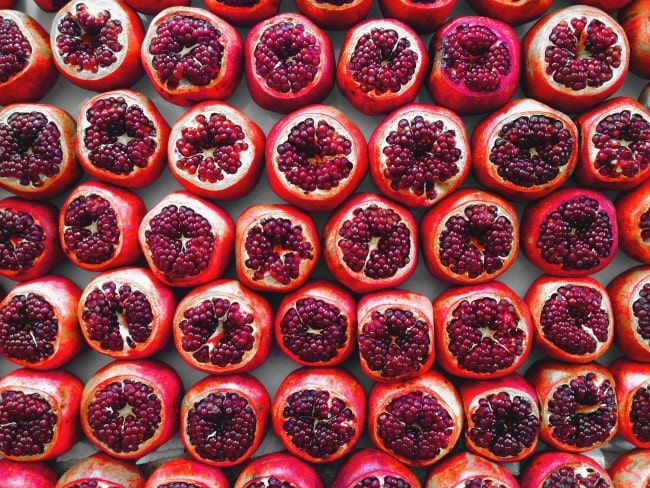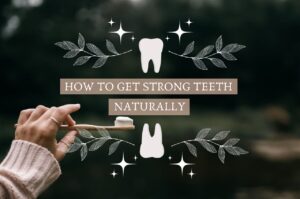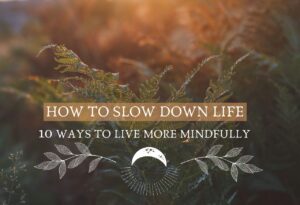This post is about how to get your period back naturally with healthy lifestyle changes.
The menstrual cycle is a woman’s fifth vital sign. That means that your cycle will reflect your general health. When the menstrual cycle is missing, it is your body’s way of telling you that something may be out of balance. By listening to the signals of your body, you can help it to get back on track again.
Almost all women experience missing periods some time in their life. And there can be different reasons why your period is missing (more on all the different reasons later!). Lifestyle is key to healing naturally. So if you want to get your period back naturally, for example by eating more and exercising less (yes you read that right!) then keep on reading to find out how!
Cause of missing periods? You are not ovulating
The professional term of the absence of periods is called amenorrhea. There are two types of amenorrhea: primary and secondary amenorrhea. Primary amenorrhea is when a woman hasn’t starting to menstruate by the age of 15. Secondary amenorrhea is when a woman who normally menstruates, suddenly misses more than three periods in a row.
It is not uncommon to occasionally miss a period, especially in times of stress or lifestyle changes. The reason why you are not having a period is because a key point in the cycle is not happening. This key point is: ovulation. Because without ovulation you won’t menstruate either.
There are many different reasons to why you aren’t ovulating. One of them can be because of stressful lifestyle changes you are going through. Another one can be unhealthy lifestyle habits, unhealthy environments with a lot of stress or toxic relationships. Then there also are medical conditions that can be the reason of missed periods.
Reasons why you aren’t ovulating
Here is a list of different reasons why you are not ovulating. It is important to know why you aren’t ovulating, so you can take active steps towards making better choices in that area and get your period back naturally.
1. Pregnancy or breastfeeding
One of the most obvious reasons for not getting your period is that you may be pregnant. Be sure to take a pregnancy test if you missed your period and are sexually active, so you can rule out this reason and continue figuring out why your period is missing!
Also if you’ve recently been pregnant and are breastfeeding, it is normal that you don’t have a period at the moment. Every time a baby drinks from the breast, a hormone called prolactine is released. In turn, prolactine indirectly suppresses the production of LH and FSH that are necessary hormones for ovulation.
2. Perimenopause
If you are in your 40’s or 50’s, a possible reason for not getting your period is that you may be perimenopausal.
Menopause is when a woman stops ovulating and having a menstrual cycle altogether. This usually happens between the age of 45-55. The time when a woman is transitioning into menopause, is called perimenopause and can take up to 10 years! When you are in perimenopause your periods can start to change and become totally different from what you’re used to. For example, cycles can become longer, irregular or even skipped altogether.
3. Just starting to have a menstrual cycle
If you are a teenager and just starting to have a menstrual cycle, occasionally missing a period is nothing to worry about. When you first start to have a menstrual cycle, the ovulation is not going to be regular. Which is why it also is normal to have irregular or missing periods. The menstrual cycle needs time to become regular and it can take several years for the hormonal feedback system to mature fully.
4.You just quit hormonal birth control
If you just quit hormonal birth control, you may experience missing periods. Hormonal birth control shuts down your own hormone production. Which is why it can take a while to get everything going again when you suddenly stop taking it. This is normal and can take a few months. Also, if you had irregular periods before you took the pill, chances are high that they will revert back to how they were before you started taking the pill.
5. Stress
If you ruled out any of the above reasons, the next reason for missing periods is stress. Stress is one of the biggest reasons for suddenly missing periods. It can both be external or internal stress and sometimes a combination of both. When you are stressed, your body will save energy and focus on survival before reproduction. Stress really affects your hormones and whether it is due to outer or inner stress, your body can’t tell the difference.
When you brain perceives a form of danger, stress hormones are produced. Those stress hormones makes you go into fight or flight mode. This response is hard-wired in our brain from evolution to help you escape life-threatening situations such as being hunted by a predator. Unfortunately stress hormones suppress functions that aren’t needed for a fast escape, such as your reproductive system. So if you are stressed for a longer time your body may not go through an ovulation, which leads to late or missed periods.
- Outer stress examples: work or school, physical exercise, environmental toxins, unhealthy food, caffeine, fasting, under-eating, weight change, travel, life changes, illness.
- Inner stress examples: negative thoughts, negative self-talk, unhealthy relationships, pessimistic approach on life, feeling unsafe, negative emotions, bad mental health.
6. Lifestyle changes
If you have made a big change in your life lately, like moved to another place, broke up with your partner or started a new job, it is possible that it affected your cycle. This because a bigger change in your life can be perceived as stress by the body. Stress can in turn lead to a delayed or skipped ovulation and therefor missing period.
7. Poor nutrition.
Another big reason for missing periods is poor nutrition. For example from being undernourished, having a nutrient depletion or having too little body fat. The body needs enough body fat to sustain a pregnancy. So when the body fat becomes too low it’s signals the brain it doesn’t have to produce hormones that are needed for ovulation, because it isn’t able to sustain a pregnancy in the first place.
Your body needs enough nutrition to produce hormones and go through a quality ovulation. If the body is feeling threatened or stressed because of a lack of food, it can delay or stop ovulation altogether. It is therefore important to eat nourishing, healthy and regular meals during the day. When the body doesn’t get the nutrients it needs nor enough calories to feel safe, it is going to prioritize survival over fertility. This can delay your ovulation and lead to missed periods. On the other side, being overweight can also cause delayed or skipped ovulation because of hormonal imbalances.
8. Over exercising.
Excessive exercise and over training can be another reason why you experience missed periods. This is because of two things. The first is that you risk burning way more energy and nutrients compared to what you take in, which leaves your body with little energy to keep everything functioning. As reproduction isn’t necessary for your survival, it’s one of the systems that is left out the first. Another reason is that excessive exercise acts as a stressor on the body. This is why over-exercising can delay ovulation or even prevent it all together, which leads to missed periods. Missed periods because of over-exercising are more common in endurance athletes such like runners and gymnasts.
9. Medical condition.
It is possible that the cause of your missed periods is because of a medical condition. In this blog post I won’t get into the details of the different conditions, but to rule this one out you can get a check up by a functional doctor or healthcare provider. If you do have a medical condition and know which one it is, it also becomes easier to know which lifestyle changes to make to manage your symptoms and get your period back naturally.
How to get your period back naturally
When you have established a possible reason for your missing periods, you can focus on making the necessary lifestyle changes to get your period back. Here are some effective and healthy lifestyle choices you can make to get your period back naturally!
1. Eat enough
To get your period back naturally, one of the best things you can do is to take a good loving look at your eating habits. First and foremost it is important that you eat enough. Because your body needs energy to have a functioning menstrual cycle. Often you need more food than you think!
Your body needs to feel safe and nourished to go through ovulation. Be sure to eat enough complex carbs (sweet potatoes, potatoes, fruits, root vegetables, whole grains), high quality proteins (wild caught fish, grass fed meat and dairy products, organic eggs, quinoa) and high quality fats (olive oil, coconut oil, cheese, butter, avocado). Also don’t be afraid of saturated fat! Because fat is an essential building stone for hormone production and regulation. And as hormones control the entire menstrual cycle, fat is therefore absolutely needed in your diet to get your period back naturally.
It’s also important to get enough micro-nutrients, especially vitamin D, zinc, vitamin C and magnesium. These are extra important to promote a healthy ovulation,and thus help with getting your period back naturally. If you are a vegetarian, vegan or strict eater you have to keep an even closer eye on getting enough nutrients, as it is easier to develop a nutrient deficiency with these type of diets.
Eat healthy and nutrient rich food regularly during the day to make sure your body has enough energy. Not only will it help to get your period back naturally, but it is also a key in improving your health in general.
✧ Read: The Best Supplements for a Healthy Menstrual Cycle.
2. Reduce your inner and outer stress
The hypothalamus in your brain plays a big role in controlling your period. It releases chemicals that indirectly signal the ovaries to produce estrogen and progestrone, which are two main hormones in the menstrual cycle. But the hypothalamus is also very sensitive to external factors like stress. When you are stressed a stress hormone called cortisol is released. Cortisol can suppress the sex hormones needed for a healthy menstrual cycle. That is why stress has a big impact on our hormones and can cause delayed or missed periods. It is simply the body’s way of noticing that it isn’t safe to get pregnant right now and making sure it doesn’t happen.
As we live in a stressed world where everyone constantly is on the go, hustling and doing a million things at the same time it is important to make time for active rest. This becomes even more important when you discover that your period has gone missing. Are you working all the time? Striving to be achieving constantly? Neglecting rest? Not allowing yourself to just be? Not allowing yourself to recover? These are some questions to ask yourself and answer honestly when your period has gone missing.
To get your period back naturally it is important to reduce the stress in your life. You can do that by first removing unnecessary stressful situations: like toxic relationships, over consumption of caffeine or alcohol and always saying yes to everything. After removing unnecessary stress you can implement habits that reduce stress even further. You could practice self care, mindfulness, read a book, take a warm bath, go into nature, paint, cuddle a pet etc. It is important to signal to the body that it is SAFE so cortisol levels can sink and ovulation can get going again.
3. Low intensity exercise
If you want to get your period back naturally you should focus on low intensity exercise versus high intensity exercise. Especially if you are someone that often skip meals, is constantly hustling and feeling kind of stressed. By throwing high intensity training on top of that will just be too much stress on the body. High intensity exercise on top of already a lot of stress can result in delayed ovulation and missing periods. This can be because your body doesn’t have enough energy to produce sex hormones for ovulation. Or because a high level of stress hormones can take over vital hormones for ovulation.
Stop with running, HIIT training and other endurance training that gets your heart racing super fast. Instead you can focus on dancing, strength training, yoga, hiking and on building muscle. This way you can still move and exercise your body, but do it in a way that doesn’t pump out cortisol into your bloodstream. Think about how and when you are moving your body. Because it is important for your body to feel safe if you want to get your period back naturally.
4. Sleep hygiene
Sleep is super important for our health and well being. Not only is sleeping essential for the body and mind to recover, but it also helps to lower stress levels. Research has shown that shift work is associated with menstrual irregularities, including anovulation. To help to get your period back naturally you can start by improving your sleep hygiene.
Firstly it’s important to sleep at least 8 hours and be regular with your sleeping schedule. Secondly you should limit screen use before bedtime, avoid naps during the day and a not drink alcohol or caffeine before going to bed. This because screens and naps during the day can make it more difficult for the brain to fall asleep. Alcohol and caffeine disturb the quality of your deep sleep.
It is also really beneficial to sleep in a completely dark room. This because it helps you fall asleep and regulates the circadian rhythm. The pineal gland in the brain is sensitive to light. Even from small sources such as a digital alarm clock, a night light, the moon or lights from street lights outside peeking through the curtains. Try to remove any light source in the bedroom and invest in black out curtains to improve your sleep hygiene.
5. Avoid hormone disruptors
Hormone disruptors called xenohormones are man made chemicals that are harmful to the body. They can mimic estrogen in the body and are therefore hormone disrupting. This means that they can mess up hormonal processes in the body. An example of xenohormones are parabens. Parabens unfortunately are present in many things we use daily such as shampoos, conditioners and make up. Another hormone disruptor is phatalates, which are found in plastic.
Switch out these toxic products to natural alternatives and stay clear of plastic. Because when you already have some troubles with your hormones, you don’t want to exaggerate the problem by getting into contact with hormone disruptors.
✧ Read: The best natural shampoo & conditioner
6. Avoid alcohol, nicotine and caffeine
Alcohol, nicotine and caffeine are all substances that have a big effect on the body. Alcohol and nicotine are poison to the body, which it has to work hard for to get rid of once you get them into your body. Not only does it take precious resources, but it is also an additional stressor that you definitely not need. Especially when you want to get your period back naturally and start ovulating again.
Caffeine is another form of stress to the body. It literally makes you feel alert and awake because it makes your body produce the stress hormone cortisol. So, avoid these drugs when you can if want to get your period back naturally.
7. Fertility increasing supplements
Another way to get your period back naturally is to support your healthy lifestyle with fertility increasing supplements. Vitamins and minerals that are especially important for a healthy menstrual cycle are vitamin D, iron, zinc, vitamin C, B vitamins and magnesium.
You can take supplements in addition to healthy eating habits! Because these supplements alone won’t fix your problem. But they can be a great support in getting your period back naturally in addition to the other healthy lifestyle habits above!
✧ Read: The best supplements for a healthy menstrual cycle.
Final thoughts on getting your period back
As I mentioned before there are different reasons to why your period is missing. Some of them can be more difficult to fix than others, such as if you have been under eating for a very long time or have an underlying medical condition. However, all the healthy lifestyle habits described in this blog post will help you to get into better health, so your body has the tools to start ovulating again. (safe, nourished, relaxed, supported)
There are some things you can keep track of to see if you are making steps in the right direction!
- Cervical Fluid Quality: Be on the look out for changes in your cervical fluid! If your cervical fluid is dry all the time, but you suddenly have days with sticky or creamy cervical fluid, your body may be trying to ovulate but not succeed yet.
- Basal Body Temperature (bbt): Chart your waking temperatures to see if they are constantly rising and falling, which is a typical sign of an anovulatory cycle. If you do ovulate, there is a persistent temperature rise the second half of the cycle. If you have a persistent temperature rise longer than 16-18 days, you’re most likely pregnant. It’s super smart to track basal body temperature so you can for unique information about your body!
- Cervical Position: If the cervix is low, feels hard and closed it is a sign that you are not fertile at the moment. If it rises higher up, gets softer and open, it is a sign that you are getting/are fertile.
When you want to get your period back naturally, you have to look into yourself and into your lifestyle to see where you can make improvements. For you it may be eating more and exercising less, while for the other is improving their sleep hygiene and reducing stress. Things that has worked for her doesn’t necessarily need to work for you!
Also don’t be afraid to break old beliefs about health. Keep an open mind, try things out and feel into you body to see how things work for you. If you are doing everything right, have patience, trust that it will come back and give it time. You can also seek help from a health professional for support and help.
I hope you find this blog post helpful!
Love, Bo.
Also, if you did get your period back, tell me how you did it in the comments! What did and didn’t work for you?
A Note From Bo!
I’m not a doctor and I can’t tell you what is best for your body. This blog post is not intended to be a substitute for professional medical advice, diagnosis or treatment. Always seek the advice of a qualified health provider with any questions you may have regarding a medical condition. Never disregard professional medical advice or delay in seeking it because of something you have read on this blog, website or in any linked materials.
Sources:
(I had way more sources to begin with, but they got lost in the editing process 🙁 )
- Taking charge of your fertility – Toni Weschler 2015
- What is Amenorrhea
- Understanding the stress response
- Neuroendocrine aspects of amenorrhea related to stress
- Effects of intensive training on menstrual function
- Sleep and reproductive health
- Risks and benefits related to alimentary exposure to xenoestrogens
SUBSCRIBE TO EARTHY VIBES
Then you’ll like Earthy Vibes newsletters!
Read our Privacy Policy.

